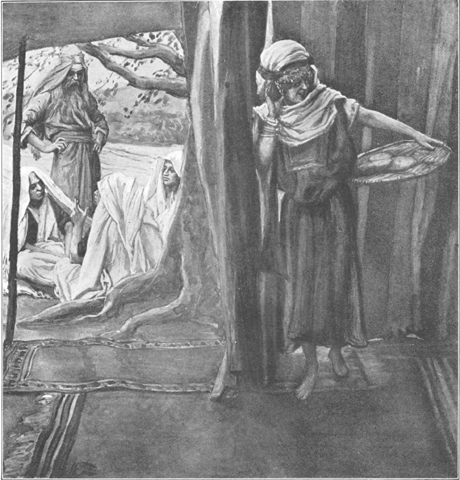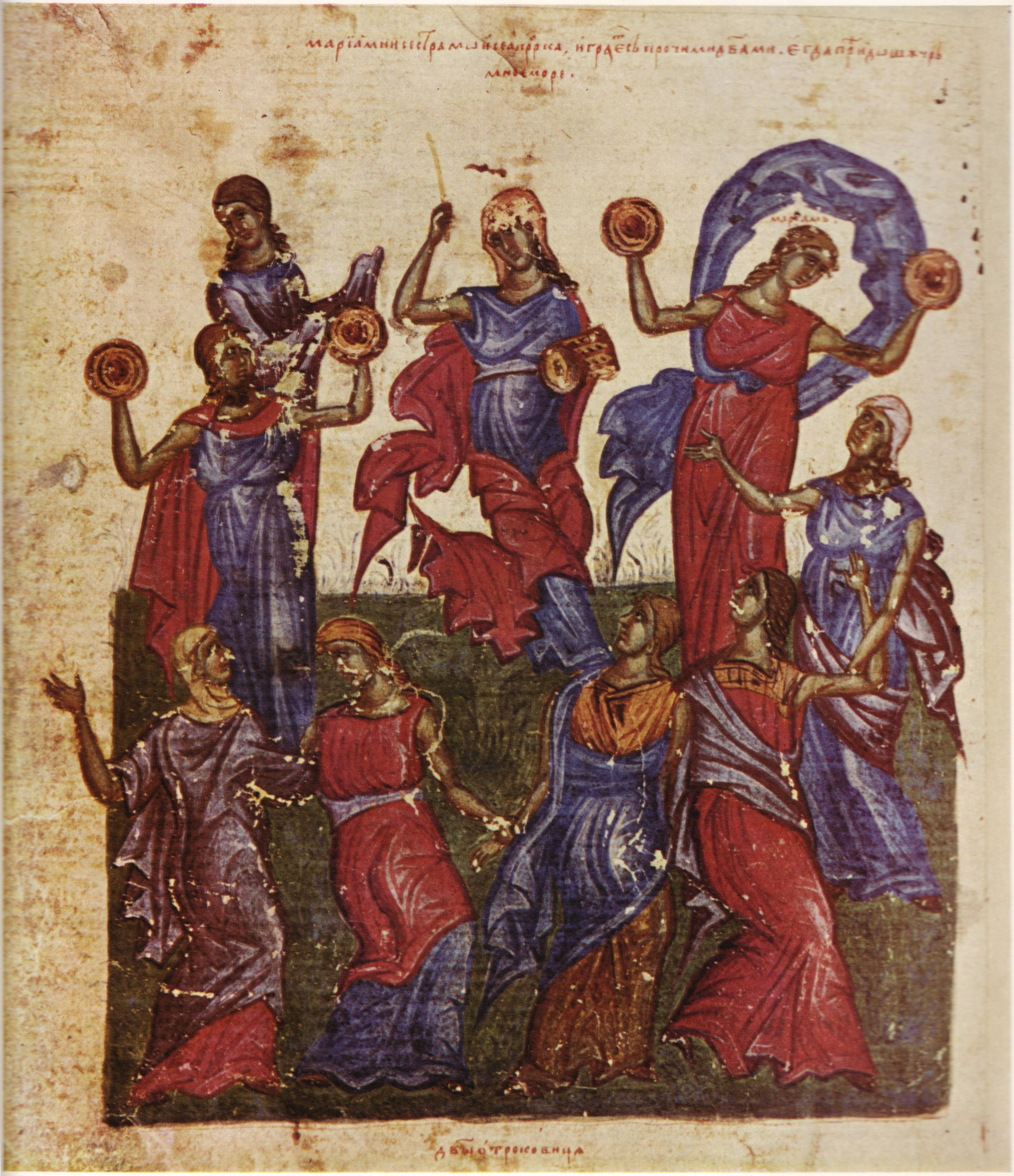
https://upload.wikimedia.org/wikipedia/commons/2/24/Tissot_Sarah_Hears_and_Laughs.gif
Why is it that when men experience Divine revelation, in all three western religions, the human male is most often given credit for his role? (When a woman experiences Divine revelation, often she is relegated to the background.)
Also, how are Hannah and Deborah uplifted in the Hebrew & Christian Scriptures?... Are their revelations attributed singularly to God? Both Moses and Aaron receive instructions from Adonai in the book of Leviticus. Prophet Miriam, Moses' sister, stands beside them throughout their journey. From her singing and leading people safely out of the Red Sea, she seems an empowered leader, as depicted in this painting.
http://upload.wikimedia.org/wikipedia/commons/7/76/Miriams_Tanz.jpg
However, she is not named in Leviticus. Is her being afflicted with leprosy an act of Adonai in response to female insubordination? OR, are male Torah commentators unhappy about her large number of followers? Do they author a cautionary tale to prevent further competition with Moses?
Miriam's Well is not actually in the Torah because it is ubiquitous in Jewish life.
Miriam is
called "Miriam the prophet" in the Torah (Exodus 15:20.) The Torah
itself does not mention the marvel/miracle known throughout Jewish
history as Miriam's Well. But the earliest Rabbinic literature explains
how the death of each of the three leaders (Miriam, Aaron, Moses) in
the wilderness included the great loss of a specific miracle for the
people; in Miriam's case, the Well. Miriam's Well was described as
traveling with the people and having healing powers. The proof text for
this idea comes from Numbers 20: 1-2 ". . . Miriam died there and was
buried there. The community was without
water, . . . " Furthermore, in Rabbinic literature, Miriam is often
written about in parallel to her brother Moses, and often given equal
status.
What of Haajar (Hagar)?
Why is not more made of her conversation with Angel Gabriel and her journey which Muslim pilgrims follow? Historically, Hagar remains in the background.
Why in Christianity is the Gospel of Mary (Mary Magdalene) rarely discussed and not read aloud Sunday mornings alongside Mathew, Mark, Luke, and John? http://www.gnosis.org/library/GMary-King-Intro.html
What of Mary's possible marriage to Jesus, as described in the rarely acknowledged Gospel of Philip?
Why are only men considered Jesus' disciples? No one knows who attended Jesus' last supper. Mother Mary, along with Mary Magdalene, and the two faithful sisters Mary and Martha must have been present. After all, they never left his side at his death (even though male followers ran away to save their lives.)
We can guess by context (and since Hebrew and Arabic are gendered languages) that the Divine, speaks through angels and directly to prophets, addressing in many cases both men and women. Why even today in 2013 are women still separated from the original experience and teaching?
M. remembers as a child how surprised she was to see Jesus' patriarchal lineage listed in the N.T. Wasn't the Holy Spirit supposed to be his daddy?
D. teaches us that in the Qur'an when a man asks to whom is he to be dutiful, three times the answer is "to your mother."
http://lostislamichistory.com/wp-content/uploads/2013/01/Aurangzeb_Handwritten_Quran.jpg
Let us all reclaim that sacred duty.



No comments:
Post a Comment